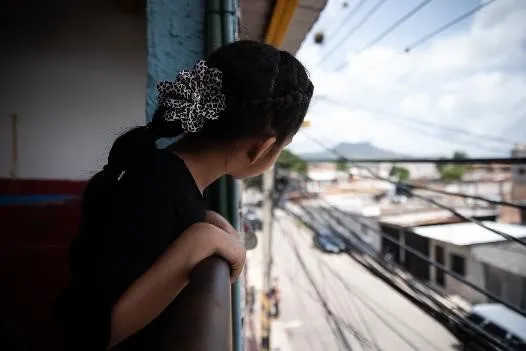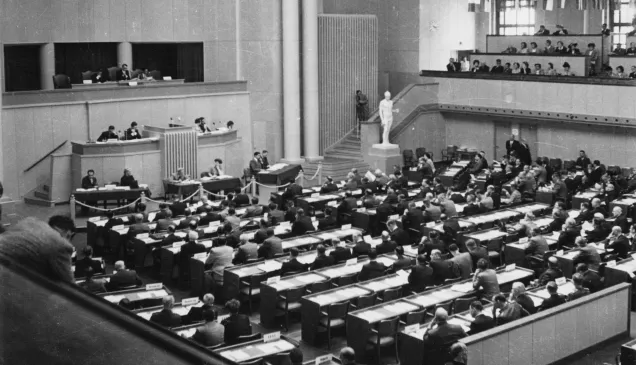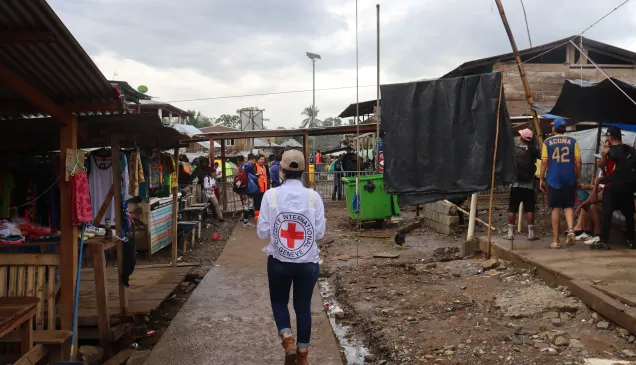Honduras: The displaced
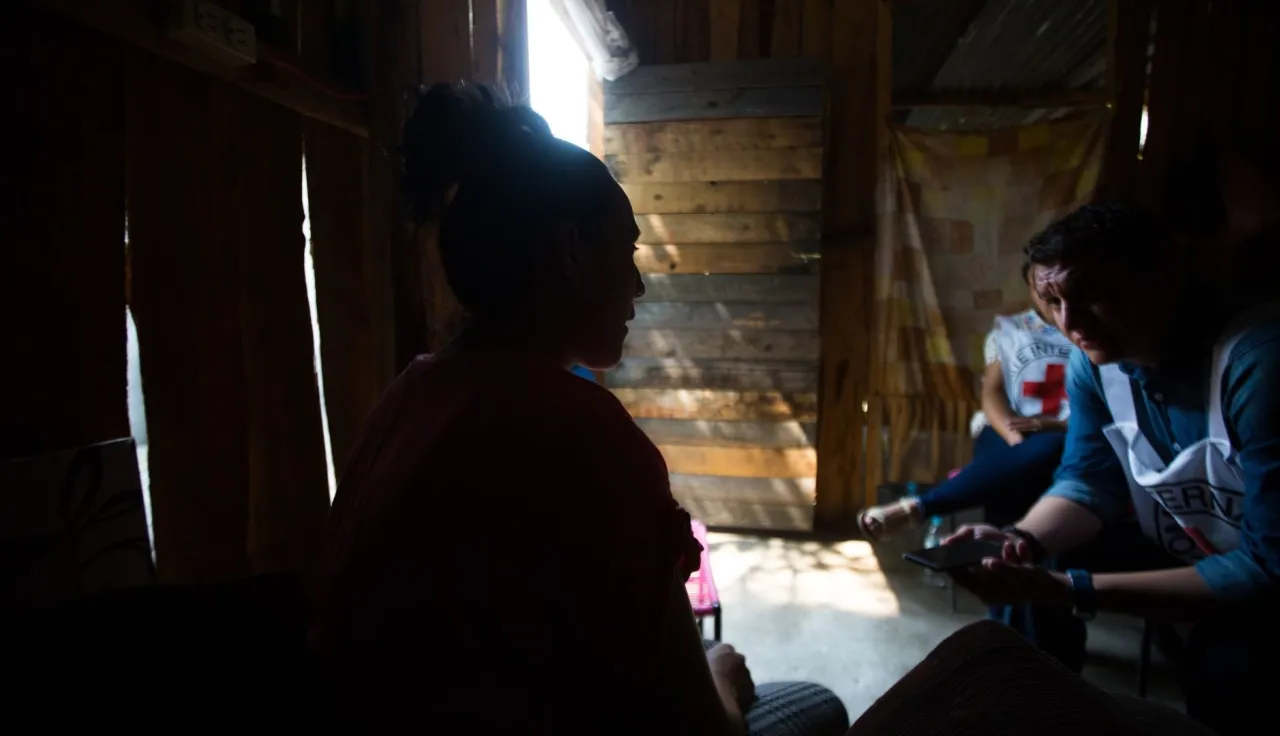
Many people who migrate, whether alone or in caravans, flee for different reasons related to violence. Despite efforts made by authorities to establish adequate protection measures, many migrants end up returning to their communities of origin, where they are once again exposed to considerable risk.
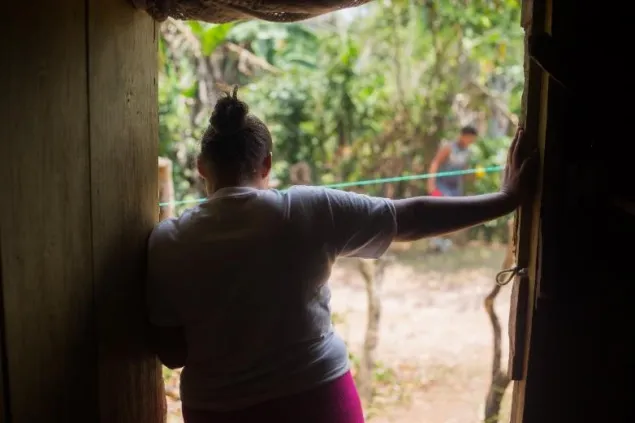
*Names of people and places have been changed to protect identities.
55% of people displaced by violence in Honduras are women, according to the Second Characterization Study of Internal Displacement due to Violence in Honduras. Many are displaced internally first, and later migrate. Here are their stories.
I
Keila's return
The clock on the bus leaving from Tapachula´s migration station struck midnight. 37 Hondurans, including Keila, deported from different parts of Mexico were on board. On the seat next to Keila, another young Honduran national named Dania was drenched in sweat from fever, and suffering from intense pelvic pain. Keila warned the bus driver a couple of times about the girl´s health, but both times he ignored her and the bus continued on its way.
To Keila's third plea for help, the driver replied: "I can't stop, I have to stick to the schedule and reach Honduras by early in the morning."
Soon after, Dania began to bleed between her legs. Keila screamed for help again as the girl next to her passed out from the bleeding. It seemed that Dania had had a miscarriage.
Yet the driver continued to ignore the situation, until the other migrants, mostly men, in a gesture of solidarity and angered by the driver's indifference, began to shout and threaten a riot inside the bus. Finally, the driver stopped in the middle of the Mexican Federal Highway 200D, in the pitch dark, and called emergency services. About an hour later, an ambulance from the Mexican Red Cross arrived.
Keila offered to go with Dania to the nearest medical centre, but they made her stay on the bus with the rest of the migrants.
"The driver told us that we were still about 10 hours away from Honduras," Keila recalls.
Dania travelled in the ambulance alone. Keila and the rest of the migrants continued on their bus journey.
Today, Keila wonders what happened to Dania -whether she survived the bleeding and was able to return alive to Honduras. Although Keila herself did make it back to her country, she was never able to go back to her home
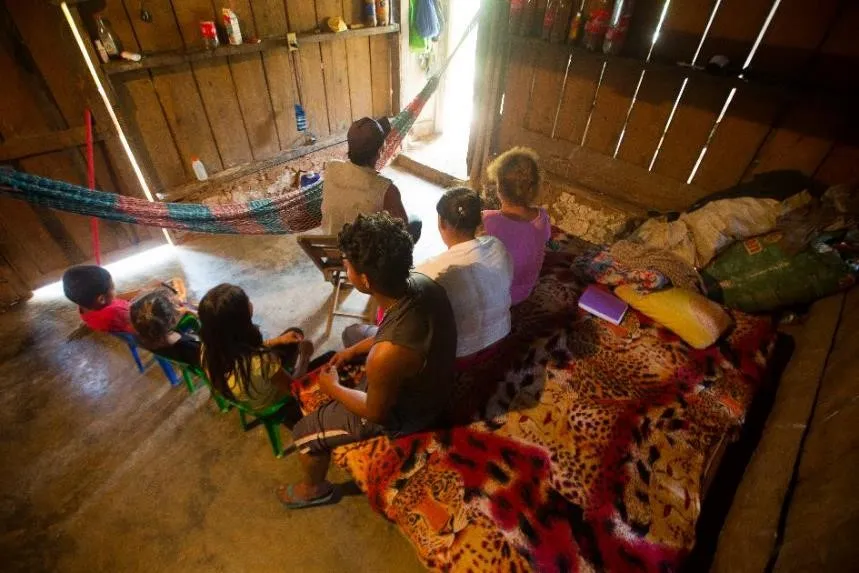
Over a year ago, six hooded men in blue uniforms, posing as police officers, forced the door of Keila´s home and took her husband. It was almost six in the morning. Keila vividly remembers how they shouted: "We have come for your husband to deal with some outstanding matters." As soon as they had broken in, they locked Keila and her three young children in the bathroom.
"Don't even think about talking or screaming because if you do, you'll die too," they threatened.
They thrust her husband to the ground and beat him, before dragging him out of the house and into a black truck without license plates.
A couple of hours later, still in shock, Keila decided to go to the local police outpost, located in a "hot zone" in the city of San Pedro Sula. She asked them if her husband had been detained. A police officer replied that they had not carried out any operations and that no one was being held at their only holding cell.
"They have just found a dead body, go check if it´s him," the policeman said. It was indeed Keila's husband.
Keila's husband had to have facial reconstruction before he could be given a dignified wake and funeral. The police impersonators, apparently members of a non-state armed group, had tortured him before taking his life. Keila's brother-in-law went to the forensic examinations and reported that he was totally unrecognizable. They had only been able to identify him by a scar on one of his arms.
Before his tragic death, Keila's husband had been paying so-called 'war tax' - charged by the group who control the neighbourhood - for months. To earn a living, he drove a truck and offered transportation services for companies and individuals. He paid around 5,000 Honduran lempiras - about $250 USD - a month in extortion. One day, his truck broke down and for a couple of months he defaulted on payments.
From that moment on, he received constant threats. He became sick and depressed. Keila noticed a huge change in him. He was no longer the hard-working, devoted and cheerful family man she knew, but a quiet shadow of himself who hardly slept. Keila tried to turn a blind eye to this situation as much as she could, in order to protect her children – two little girls and a boy - from worry and anxiety.
After her husband´s murder, Keila decided to stay in the neighbourhood.
"I had nowhere else to go. Within two weeks of my husband's murder, they began threatening me. A few days later, at dusk, two individuals turned up in a motorcycle taxi and broke into my house. At that moment, I didn't know what they were looking for. I ran out with my children," Keila recalls with anguish.
That night she took refuge in the house of some relatives who lived in a neighbouring district.
The following week, Keila went back home, but she began to receive written threats left at her door: "Any minute now, it'll be your turn," "if you speak out, you'll die," "we won't leave any loose ends." Once they got hold of her mobile phone number, the written threats became verbal. On one phone call, they gave her a 24-hour ultimatum to leave the house, threatening to kill her, her children and the rest of her family if she refused to obey.
"Without a second thought, I left the neighbourhood the very next morning."
Keila left home that day wearing only a white T-shirt, beige shorts, plastic sandals and carrying some clothes for her children. She left the neighbourhood without a plan, with the sole purpose of avoiding the same fate as her husband's.
Keila decided to migrate and leave her children with relatives while she settled in a new place. On the way to the United States, she was detained in Tapachula, Mexico and held in a migration station for three days before being sent back by immigration authorities, having had no access to protection mechanisms. Upon her return to Honduras, she went back to live with her children and the rest of her family in the interior of the country, far away from the danger and threats of city life.
Here, in a wooden house in the middle of the forest, Keila sleeps in a small room with her children. They all share a double bed, where their bodies intertwine, slotting into each other like a puzzle. Some nights, the children are haunted by nightmares, and wake up questioning their mum about those strangers who chased them in their old home.
"Here in the countryside life is not easy. There isn't much work, there are no medical centres, you have to walk a long way to get food, and to get to school," Keila laments.
"But at least we have peace and quiet."
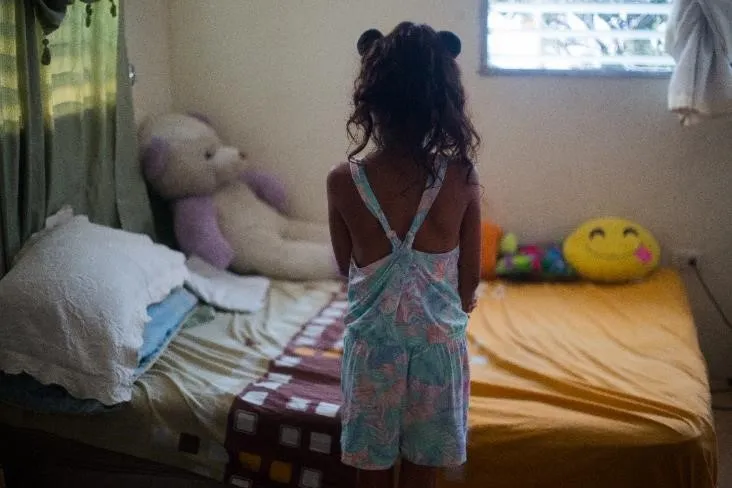
II
Michelita's prayer
"Once upon a time my friend´s mother had financial problems and was being pressured by criminals. So, her mother made the decision to "cross the river". They bade one another a very sad farewell, but they knew that God would be with her. Overcome by sadness, the girl´s school grades suffered. She cried and prayed to God for her mother to come back, and was worried about the stories and tales she heard about migrants dying of thirst, hunger, heat, cold, animal bites, and so on. Thankfully for her, since her mother didn't know what immigration officers were like, she was caught and she came back home, safe and sound – thank God! Everyone was so happy to see her alive."
Michel, 8 years old.
Michel is a slim girl, only 8 years old. Her hair is tied in pigtails with a Minnie Mouse hairband. Cheerful and eloquent, she is one of the best students in her class. Her brown eyes light up with joy every time she hugs and greets her mother at the school gate. One day, as part of a class assignment for the week on 'preventing irregular migration,' an initiative run by the government every August, the teacher asked all the students to write a letter.
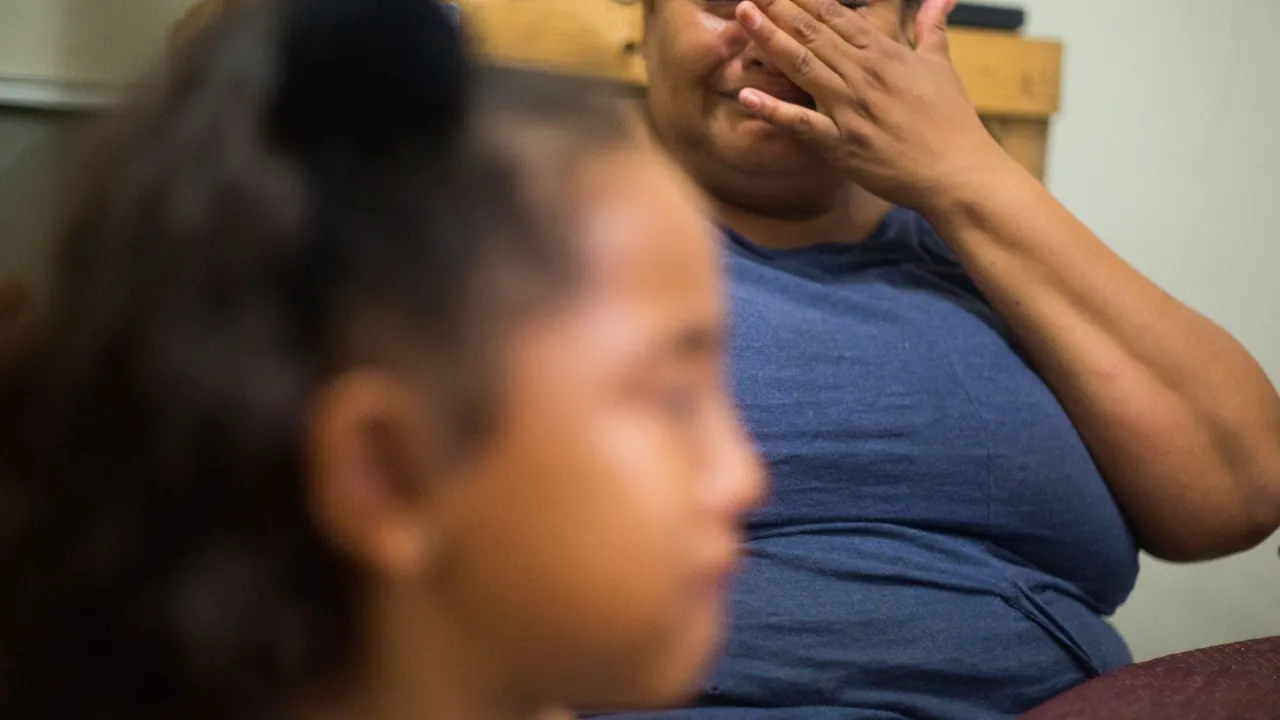
For Michelita, as her classmates call her, it was a very difficult assignment. At her tender age, she had already suffered the consequences of irregular migration when her mother left for over a month. Angela, her mother, was the victim of extortion and constant assaults on her small family business. She owned a kiosk near a large state high school in San Pedro Sula. Business was good. It paid for Michelita to go to a private bilingual school and learn English.
One day, a young man aged about 21, nicknamed El Chino, whom Angela had known since they were children came to visit her shop. A while back, El Chino had joined one of the armed groups that controlled some of the neighbourhoods of San Pedro Sula.
"I want to talk to you", he said. "They sent to me to ask if you can sell through your business... you know what I mean," he finished haltingly.
"Sell what?" Angela asked with a mixture of surprise and anger.
El Chino who once, as a child, had come to her shop for sweets, that day had come to negotiate selling drugs through her business. The profits would go to the group and they would give her a small cut. Angela objected.
"El Chino left when I rejected his proposal. I was overwhelmed and burst into tears," Angela recalls sadly.
Since that day, her business has been raided several times. Hooded men followed her frequently. Sales began to decline, and debts piled up. Angela and her family had to sell everything, including a couple of video game machines, a soda cooler, a couple of football tables. The entire family moved to a different neighbourhood.
In the new house, they were violently attacked again. Two individuals entered the house and assaulted her 18-year-old sister Karla, who has mobility problems due to poliomyelitis, which she has suffered from since her childhood.
"It was the middle of the afternoon when they broke in," Karla recalls. "They pointed a black gun at me and took my mobile phone and the headphones I use for listening to music."
After the assault, they decided, once again, to move to another neighbourhood within their budget in a more peaceful area
"But when the landlady of the house we wanted to rent found out that we had been victims of extortion and assaults by armed groups, she did not want to close the deal", Angela recalls.
Feeling overwhelmed and impotent, Angela decided to flee the country and embark on the migration route, seeking a better way to pay off her debts and finance Michelita's bilingual school.
"I pray to God that the coyotes (people smugglers) won't eat Michelita's mum," her classmates prayed in class. During Irregular Migration Prevention Week, many stories are told at school of coyotes taking people in to the United States.
"I would also pray every night while my mother was away," recalls Michelita.
"Apart from the coyotes, I was afraid of the intense cold at night, the heat and dehydration of the desert, and the crocodiles in Rio Grande that we learned about at school," she adds.
These stories about the dangers of migrating are told by teachers to prevent irregular migration amongst school children.
Her feelings of sadness caused by her mum's absence affected her performance at school.
"Michel has always had excellent grades of 90% and above," Angela beams.
"My average grades lowered to 70%, 'satisfactory,' in three subjects, including in my favourite subject, science - adds Michel.
"Why is science your favourite subject?" asks her mother.
Michel, hugs her mother and replies, "because I would like to be a doctor when I grow up, so I can heal injured people."
Her mother was returned from a migration station in Mexico a few months ago, having not being able to find a safe place to rebuild her life. Today Michelita is happy to have her back. According to the little girl, her prayers worked. Her grades have improved and she is top of her class again. The family moved to the outskirts of San Pedro Sula. They purchased a small lot using their own means, and the ICRC assisted them financially to buy a place to live.
"We always dreamed of having a home of our own. Now that we have it, we hope to start our lives afresh," Angela says as she takes her daughter's hand and thanks her for her prayers.
III
Relentless violence despite Covid-19
Judith used to sew for a living at her home in the neighbourhood of Tegucigalpa. She barely earned enough to survive, but nonetheless was also required to pay a 'war tax' charged by armed groups. Despite being a mother of two and pregnant with a third, when she was late with the payment they beat her. Her partner at the time intervened, and got injured in the process. The group gave them only a few days to leave their home. Her partner decided to move to another part of the country without them. Judith, pregnant and responsible for her two little ones, was left alone, vulnerable and exposed.
Judith often feels hopeless. Her children ask her all the time why these people persecute them and why their father abandoned them. She doesn't know how to answer them, and that leaves her feeling crushed.
"At times, I have thought about ending it all."
Judith and her family received support and mental health care from the ICRC.
"Psychosocial support has allowed us to cope with the situation and heal open wounds," she reflects.
Judith, now a single mother, who has had to deal with internal displacement during a pandemic, struggles to balance her own mental health with the challenges her children face as they start their lives over again and become part of a new community in another part of the country.
"When I see my children in the morning, I smile. Today I am able to say that I appreciate life again."
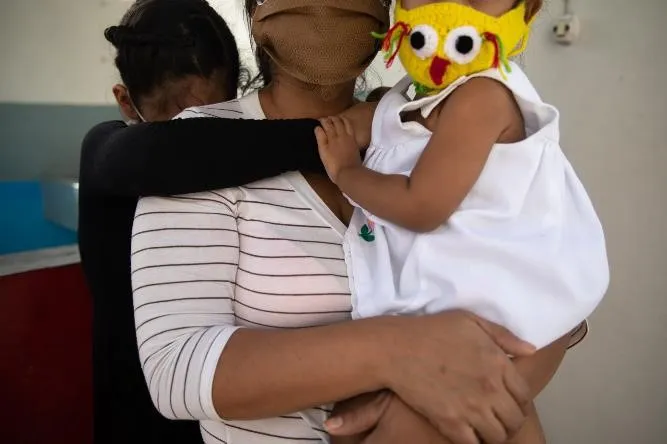
Tania is also an internally displaced single mother who has two little girls. She has had to relocate on more than one occasion due to the constant fear of being hunted down by armed groups. Tania was forced to leave her home and subsequently her husband after he was severely beaten. He was a transporter and had to migrate due to threats and extortion.
Tania and her girls are now in a safe place, thanks to the ICRC's support. For Tania, keeping the pantry stocked is a priority during the pandemic, but it´s even more of a priority to feel safe, even if safety is found behind gates. When Tania goes to work, she asks a neighbour to help look after her girls.

Although they don´t leave their home, the little ones play creatively and use their imagination to help them forget about the security gates and the confinement caused by the constant threat of insecurity and the pandemic.
The oldest girl, 10-year-old Carolina, climbs up to the roof to watch the people and cars that pass by, and, above all, to breathe in some fresh air, and have fun playing hide and seek with her little sister, who is just one and half years old.
La pandemia de la covid-19 ha representado un reto más a la situación de desplazamiento de Tania y sus niñas.
"Mi preocupación más grande hasta ahora es hacerle frente a la educación a distancia de Carolina. Debo tener siempre crédito y acceso a internet para que no pierda sus clases. Ahora el desempleo es alto y los ingresos pocos", cuenta Tania.
Por los momentos, Tania ha encontrado trabajo en un taller de fabricación de mascarillas.
"Alcanza para poder alimentar a las niñas, no podría pedir más".
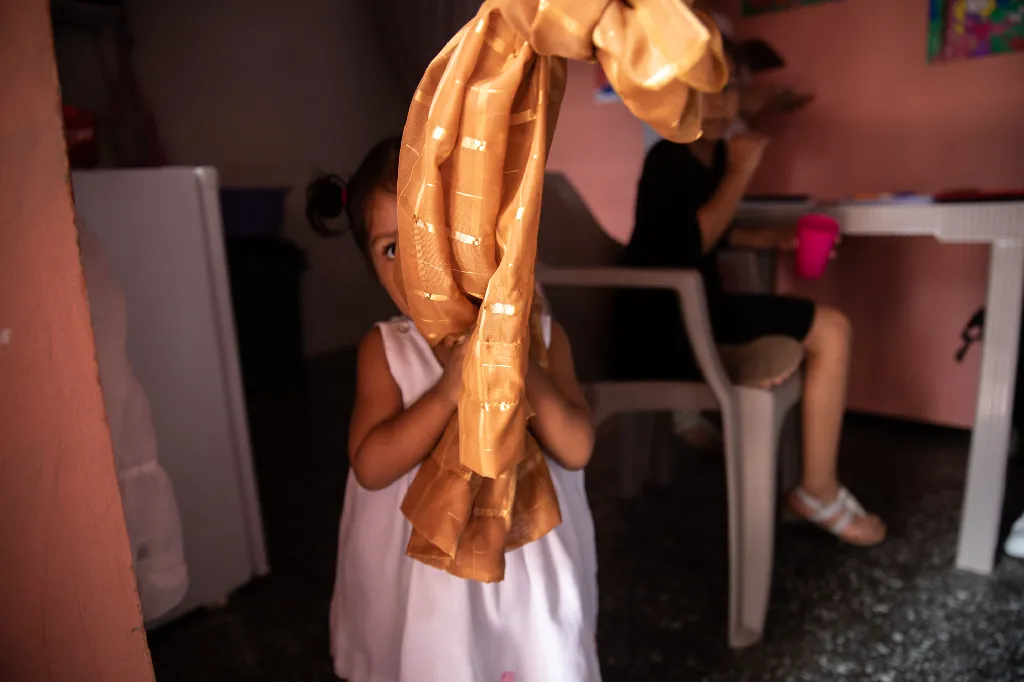
The ICRC supported and helped Judith and Tania to relocate through their protection services for internally displaced people. Today, they both form part of a face mask-production project, supported by the ICRC, set up as a response to the challenges posed by Covid-19. Thanks to this, they have income, and are therefore able to survive and cope with their situation, albeit temporarily.
The most recent Characterization Study of Internal Displacement due to Violence in Honduras indicated that between 2004 and 2018, 247,090 people had been internally displaced due to violence, 55% of whom were women.
Women are more exposed to gender-based violence and more vulnerable to displacement.
Many of those sent back to Honduras are not granted refugee status in transit countries, neither are they guaranteed safety upon their return. Those who leave the country in an attempt to flee violence, often end up embarking on the migration route again when they discover they have no other way of protecting themselves. They are internally displaced first, then they migrate.
The ICRC's Displaced in Cities report indicates that: "The chief responsibility for providing protection and assistance to internally displaced persons lies with the States, under whose jurisdiction these persons are found."
This same report states that internally displaced people have particular needs, or are in a vulnerable situation due to their displacement, which often exacerbates the difficulties they already face as a consequence of violence.
In many cases, the humanitarian response is insufficient, and a better long-term vision is required to meet the needs of the affected communities using a clearly defined strategy to seek effective access to protection mechanisms in the countries of origin and transit.
"The ICRC in Honduras has focused efforts on implementing programmes to look after people who are internally displaced by violence, including returned migrants in need of protection," says Karim Khallaayoun, the ICRC Head of Mission in Honduras.
"In addition to creating opportunities for employment and social inclusion for people who migrate for economic reasons, authorities should focus on strengthening the promotion of a legal framework for the protection and assistance of people displaced by violence," adds Khallaayoun.
Currently, a bill exists for the protection of people displaced by violence, which includes advice and recommendations provided by the ICRC.
"Violence continues to be the other urgent pandemic that is affecting more than 247,000 internally displaced people. We urgently need to provide them with help and protection, despite the challenges faced in the country, and the current context lends itself to passing a law that provides more effective solutions," concluded Khallaayoun.
